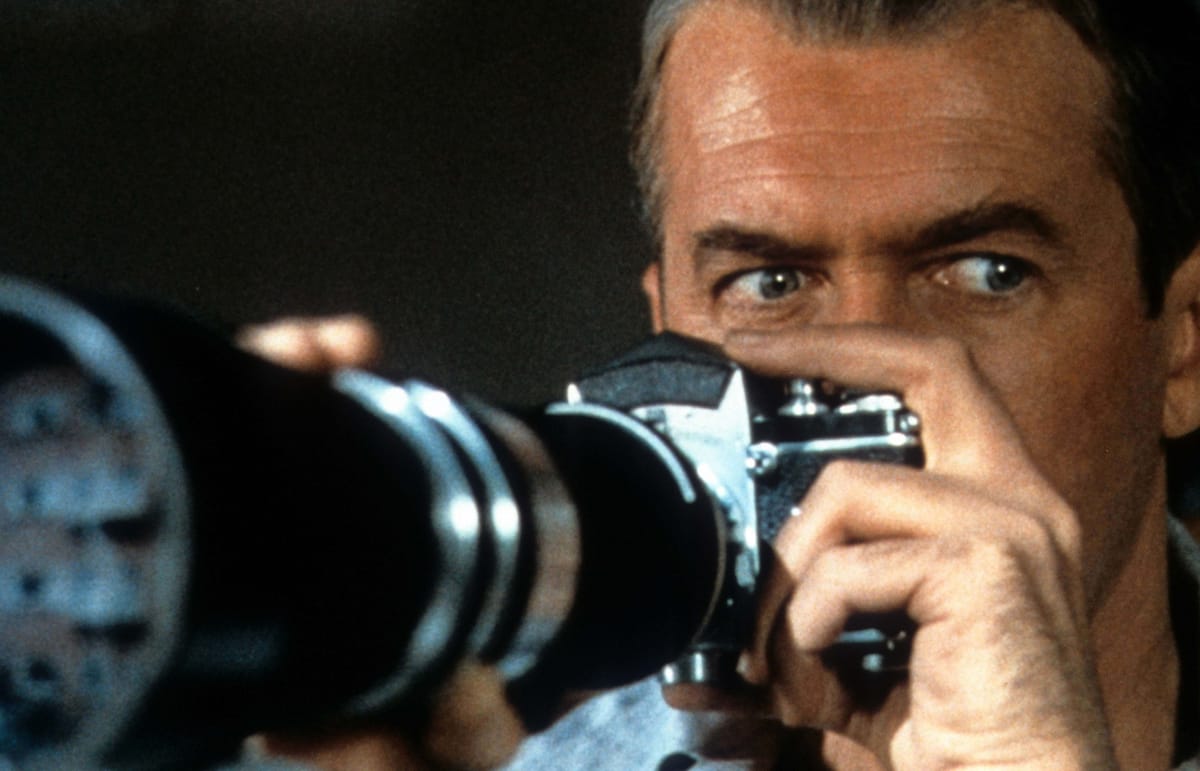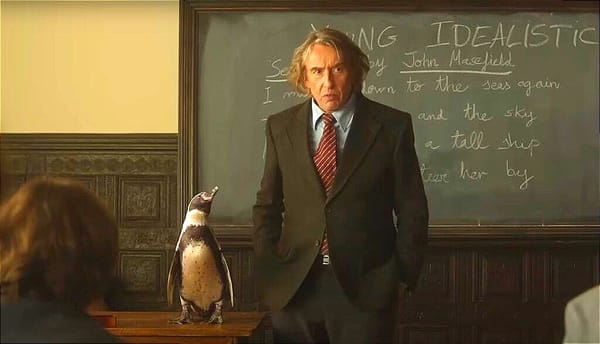Ty's Movie Club: "Rear Window"
Come to a screening and discussion of Hitchcock's classic of voyeurism and murder on Thursday 10/10 at the West Newton Cinema.

A quick head's up for local readers: Once again I'll be presenting a screening and conversation at the West Newton Cinema, in Newton, MA, as part of the (mostly) monthly series "Ty Burr's Movie Club" hosted by the West Newton Cinema Foundation. This Thursday, October 10, at 6 p.m., we'll be showing the classic Alfred Hitchcock suspense thriller "Rear Window," arguably – and, remember, arguing about movies is the fun part – Hitch's greatest film. (All votes for "Vertigo," "Notorious," "Strangers on a Train," "Psycho," and "Shadow of a Doubt" will be counted.)
You can buy tickets at the West Newton website or by clicking the link below.

Should you bring the kids? Oh, hell, yes, provided they're not too young or too tender-hearted. A few years ago I gave a talk to a classroom full of 6th graders and showed them three clips from the movie: The opening shot, the introduction to all the backyard neighbors, and the chilling sequence where the dog's body is discovered and all the neighbors' windows light up – except one. By the third clip, the kids were all enthusiastically chanting – and I swear I am not making this up – "REAR-WINDOW-REAR-WINDOW."
Here's what I wrote about the movie in my e-book The 50 Movie Starter Guide: What You Need to Know If You Want to Know What You're Talking About.
Unlike Psycho, which just wants to seriously mess with your head, Rear Window is Alfred Hitchcock at his most commercial, clever, entertaining. Yet you’ll never find a more profound movie about how and why we watch movies—about the ways we order life into fiction. In Rear Window, every window is a short story waiting to happen.
It’s just that the one directly across from Jimmy Stewart may reveal a wife murderer. As in so many films, the trusted Stewart’s our man up there on the screen, a surrogate watcher in the dark. He’s playing a photojournalist laid up with a broken leg—look how masterfully Hitchcock gives us the backstory with a simple opening pan of plaster cast, smashed camera, action snapshots, photo negative, magazine cover—and on a broiling, boring Manhattan day, he has nothing to do but stare across his courtyard and spy on his neighbors.
The movie, written by John Michael Hayes from a short story by Cornell Woolrich, drolly observes our everyday voyeurism—how obsessively we like to watch. Stewart’s Jeff Jeffries has every reason to look away from the window: his girlfriend is the stylish, sexy, indulgent Lisa (Grace Kelly). Yet she’s pressuring him to get engaged, so is it any wonder that each narrative unfolding across the way is a variation on male fears surrounding marriage and commitment? There’s Miss Lonelyhearts (Judith Evelyn) with her imaginary dinner dates; the songwriter with a party every night (Ross Bagdasarian—creator of the Chipmunks, trivia fans); the hubba-hubba Miss Torso (Georgine Darcy); the sex-crazed newlyweds; the married couple that lives for their little dog.
And there’s that husband and wife who are always arguing until, one dark night, she disappears. Off visiting her mother, says the hulking, soft-spoken Mr. Thorwald (Raymond Burr), but why does he keep leaving the apartment with his suitcase? What’s in there? So many questions, and finally Jeff has to push through the invisible wall by sending his girlfriend over to investigate, which, of course, breaks the rules of voyeurism, so now anything can happen . . .
This is the kind of setup Hitchcock just loved: gimmicky but loaded with potential, both in scares and darker shadings. The movie is a working definition of how to tell a story through visual means, and there may be no creepier moment in movies than when that little dog is found dead, its owners scream, and every window overlooking the courtyard lights up—except Thorwald’s, through which we see only the faint orange glow of a cigarette.
If you want Hitchcock’s deepest movie, seek out 1958’s Vertigo, a berserk tragedy about how we turn the people who love us into the people who never loved us back. It’s the one work where this most private of filmmakers finally seemed to open up about his obsessions. Rear Window, by contrast, is simply (and not so simply) an absurdly enjoyable masterpiece of suspense, one that wonders why we’re compelled to look—and what happens when someone looks back.
Feel free to leave a comment or add to someone else's.
Please forward this to friends! And if you’re not a paying subscriber and would like to sign up for additional postings and to join the discussions — or just help underwrite this enterprise, for which the author would be very grateful — here’s how.






